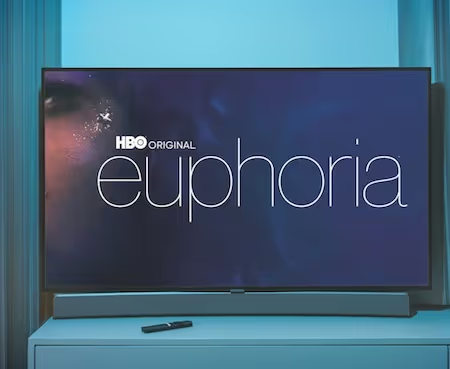


Helping our kids find reliable information in the vast swamp of misinformation, disinformation, conspiracies, and propaganda on the internet and social media right now is crucial.
I recently spoke to Joel Breakstone, director of the Stanford History Education Group (SHEG). SHEG is studying and teaching young people to be discerning consumers of information online. Breakstone told me that what worries him most is “the ease at which information is spread. Anybody who has a digital device has the opportunity to reach millions of people potentially.”
Disinformation is not new. But the speed at which it spreads is. Young people are struggling to tell the difference between unreliable information and legitimate sources. And here is the thing, so much of disinformation on the internet is from kids and adults reposting.
This TTT is about giving our kids skills to better understand what they are seeing and not passing on anything suspect. I write here about evidence-based techniques that are very effective. What is great is that kids and teens are natural questioners, and they don’t like to get duped. So empowering them to help stop these problems and be a part of the solution can resonate with them.
Last year the Stanford History Education Group completed a study of more than 3,000 representative high school students across the United States. The study asked students to complete a series of tasks that relied on information sources from the internet. These tasks were done on school computers, and students were allowed to search online while answering the questions.
One of the tasks showed the students a Facebook video claiming to document voter fraud in the United States during the 2016 presidential primaries. The videos showed people allegedly stuffing ballots into ballot boxes. The students were asked whether they thought this was a trustworthy source of evidence of voter fraud.
More than half of the students, 52 percent, said that the video, indeed, was strong evidence of voter fraud. They didn't ask where the video had come from and who posted it on Facebook. In fact, the video came from an anonymous source, and there was no indication that these videos were filmed in the United States.
Even among the students who rejected the video as good evidence for voter fraud, almost none questioned where these videos came from. They gave no ideal reasons for rejecting the videos saying things like they wanted to see other videos like these, or they wanted there to hear the audio on the videos.
Shockingly, out of the 3,000-plus students who participated, only three students left the website, opened a new tab, and did a search to help them evaluate the source video. They quickly found out that the videos were from Russia and had nothing to do with voter fraud in the United States.
Joel Breakstone and SHEG are figuring out how to teach information validation skills to young people. For this, he is enlisting help from professional fact-checkers who approach validation this way.
So how do we apply this all to social media? I talked to a junior in high school who told me that she thinks.
“The issue on all social media platforms is that information from various sources appears the same,” she said. “And so there isn't necessarily a clear way to distinguish between types of sources or the quality of information when you are engaging with it.
“Sometimes on Instagram, you can at least see who the person is who is posting the information if they have a big following and are ‘verified.’”
She said the most common misleading posts she sees are about presidential candidates and Black Lives Matter.
Stanford History Education Group has a comprehensive website with lessons and tips for evaluating information sources on the internet. Watching their videos — and of course, talking about them — as a family can be a great activity to do together.
Here is a link to a free online curriculum from the SHEG. This curriculum is not just for teachers — it is for all of us! This is a crucial time to do exercises like these in our homes right now.
Click here if you are interested in hosting an ONLINE screening for your community.
Click here if you want to attend an ONLINE screening.
Click here for information about Dr. Ruston’s new book
Subscribe to Dr. Ruston’s Screenagers Podcast.
Learn more about showing our movies in your school or community!
Join Screenagers filmmaker Delaney Ruston MD for our latest Podcast

Learn more about our Screen-Free Sleep campaign at the website!
Our movie made for parents and educators of younger kids
Learn more about showing our movies in your school or community!
Learn more about showing our movies in your school or community!
Join Screenagers filmmaker Delaney Ruston MD for our latest Podcast

Learn more about our Screen-Free Sleep campaign at the website!
Our movie made for parents and educators of younger kids
Join Screenagers filmmaker Delaney Ruston MD for our latest Podcast
As we’re about to celebrate 10 years of Screenagers, we want to hear what’s been most helpful and what you’d like to see next.
Please click here to share your thoughts with us in our community survey. It only takes 5–10 minutes, and everyone who completes it will be entered to win one of five $50 Amazon vouchers.
Helping our kids find reliable information in the vast swamp of misinformation, disinformation, conspiracies, and propaganda on the internet and social media right now is crucial.
I recently spoke to Joel Breakstone, director of the Stanford History Education Group (SHEG). SHEG is studying and teaching young people to be discerning consumers of information online. Breakstone told me that what worries him most is “the ease at which information is spread. Anybody who has a digital device has the opportunity to reach millions of people potentially.”
Disinformation is not new. But the speed at which it spreads is. Young people are struggling to tell the difference between unreliable information and legitimate sources. And here is the thing, so much of disinformation on the internet is from kids and adults reposting.
This TTT is about giving our kids skills to better understand what they are seeing and not passing on anything suspect. I write here about evidence-based techniques that are very effective. What is great is that kids and teens are natural questioners, and they don’t like to get duped. So empowering them to help stop these problems and be a part of the solution can resonate with them.
Last year the Stanford History Education Group completed a study of more than 3,000 representative high school students across the United States. The study asked students to complete a series of tasks that relied on information sources from the internet. These tasks were done on school computers, and students were allowed to search online while answering the questions.
One of the tasks showed the students a Facebook video claiming to document voter fraud in the United States during the 2016 presidential primaries. The videos showed people allegedly stuffing ballots into ballot boxes. The students were asked whether they thought this was a trustworthy source of evidence of voter fraud.
More than half of the students, 52 percent, said that the video, indeed, was strong evidence of voter fraud. They didn't ask where the video had come from and who posted it on Facebook. In fact, the video came from an anonymous source, and there was no indication that these videos were filmed in the United States.
Even among the students who rejected the video as good evidence for voter fraud, almost none questioned where these videos came from. They gave no ideal reasons for rejecting the videos saying things like they wanted to see other videos like these, or they wanted there to hear the audio on the videos.
Shockingly, out of the 3,000-plus students who participated, only three students left the website, opened a new tab, and did a search to help them evaluate the source video. They quickly found out that the videos were from Russia and had nothing to do with voter fraud in the United States.
Joel Breakstone and SHEG are figuring out how to teach information validation skills to young people. For this, he is enlisting help from professional fact-checkers who approach validation this way.
So how do we apply this all to social media? I talked to a junior in high school who told me that she thinks.
“The issue on all social media platforms is that information from various sources appears the same,” she said. “And so there isn't necessarily a clear way to distinguish between types of sources or the quality of information when you are engaging with it.
“Sometimes on Instagram, you can at least see who the person is who is posting the information if they have a big following and are ‘verified.’”
She said the most common misleading posts she sees are about presidential candidates and Black Lives Matter.
Stanford History Education Group has a comprehensive website with lessons and tips for evaluating information sources on the internet. Watching their videos — and of course, talking about them — as a family can be a great activity to do together.
Here is a link to a free online curriculum from the SHEG. This curriculum is not just for teachers — it is for all of us! This is a crucial time to do exercises like these in our homes right now.
Click here if you are interested in hosting an ONLINE screening for your community.
Click here if you want to attend an ONLINE screening.
Click here for information about Dr. Ruston’s new book
Subscribe to Dr. Ruston’s Screenagers Podcast.
Sign up here to receive the weekly Tech Talk Tuesdays newsletter from Screenagers filmmaker Delaney Ruston MD.
We respect your privacy.
Helping our kids find reliable information in the vast swamp of misinformation, disinformation, conspiracies, and propaganda on the internet and social media right now is crucial.
I recently spoke to Joel Breakstone, director of the Stanford History Education Group (SHEG). SHEG is studying and teaching young people to be discerning consumers of information online. Breakstone told me that what worries him most is “the ease at which information is spread. Anybody who has a digital device has the opportunity to reach millions of people potentially.”
Disinformation is not new. But the speed at which it spreads is. Young people are struggling to tell the difference between unreliable information and legitimate sources. And here is the thing, so much of disinformation on the internet is from kids and adults reposting.
This TTT is about giving our kids skills to better understand what they are seeing and not passing on anything suspect. I write here about evidence-based techniques that are very effective. What is great is that kids and teens are natural questioners, and they don’t like to get duped. So empowering them to help stop these problems and be a part of the solution can resonate with them.
Last year the Stanford History Education Group completed a study of more than 3,000 representative high school students across the United States. The study asked students to complete a series of tasks that relied on information sources from the internet. These tasks were done on school computers, and students were allowed to search online while answering the questions.
One of the tasks showed the students a Facebook video claiming to document voter fraud in the United States during the 2016 presidential primaries. The videos showed people allegedly stuffing ballots into ballot boxes. The students were asked whether they thought this was a trustworthy source of evidence of voter fraud.
More than half of the students, 52 percent, said that the video, indeed, was strong evidence of voter fraud. They didn't ask where the video had come from and who posted it on Facebook. In fact, the video came from an anonymous source, and there was no indication that these videos were filmed in the United States.
Even among the students who rejected the video as good evidence for voter fraud, almost none questioned where these videos came from. They gave no ideal reasons for rejecting the videos saying things like they wanted to see other videos like these, or they wanted there to hear the audio on the videos.
Shockingly, out of the 3,000-plus students who participated, only three students left the website, opened a new tab, and did a search to help them evaluate the source video. They quickly found out that the videos were from Russia and had nothing to do with voter fraud in the United States.
Joel Breakstone and SHEG are figuring out how to teach information validation skills to young people. For this, he is enlisting help from professional fact-checkers who approach validation this way.
So how do we apply this all to social media? I talked to a junior in high school who told me that she thinks.
“The issue on all social media platforms is that information from various sources appears the same,” she said. “And so there isn't necessarily a clear way to distinguish between types of sources or the quality of information when you are engaging with it.
“Sometimes on Instagram, you can at least see who the person is who is posting the information if they have a big following and are ‘verified.’”
She said the most common misleading posts she sees are about presidential candidates and Black Lives Matter.
Stanford History Education Group has a comprehensive website with lessons and tips for evaluating information sources on the internet. Watching their videos — and of course, talking about them — as a family can be a great activity to do together.
Here is a link to a free online curriculum from the SHEG. This curriculum is not just for teachers — it is for all of us! This is a crucial time to do exercises like these in our homes right now.
Click here if you are interested in hosting an ONLINE screening for your community.
Click here if you want to attend an ONLINE screening.
Click here for information about Dr. Ruston’s new book
Subscribe to Dr. Ruston’s Screenagers Podcast.

Many young people and adults love horror films and talk about how they love the feeling of being scared. This is so very different from me. I am not at all a fan. This week I have been thinking about ways to talk with kids about when horror in movies, TV shows, and online, in general, go too far.
READ MORE >
The Screenagers’ Tech Talk Tuesday blog from two weeks ago provided four questions for teens to answer regarding the HBO show Euphoria. As intended, the questions sparked conversations among adults and teens, and we got many thoughtful answers from teens in the questionnaire.
READ MORE >
I find HBO’s Euphoria incredibly disturbing and know that although so many of our kids have watched it, many parents never have. Today, I offer a way into a conversation with youth about the show’s topics and popularity.
READ MORE >for more like this, DR. DELANEY RUSTON'S NEW BOOK, PARENTING IN THE SCREEN AGE, IS THE DEFINITIVE GUIDE FOR TODAY’S PARENTS. WITH INSIGHTS ON SCREEN TIME FROM RESEARCHERS, INPUT FROM KIDS & TEENS, THIS BOOK IS PACKED WITH SOLUTIONS FOR HOW TO START AND SUSTAIN PRODUCTIVE FAMILY TALKS ABOUT TECHNOLOGY AND IT’S IMPACT ON OUR MENTAL WELLBEING.
